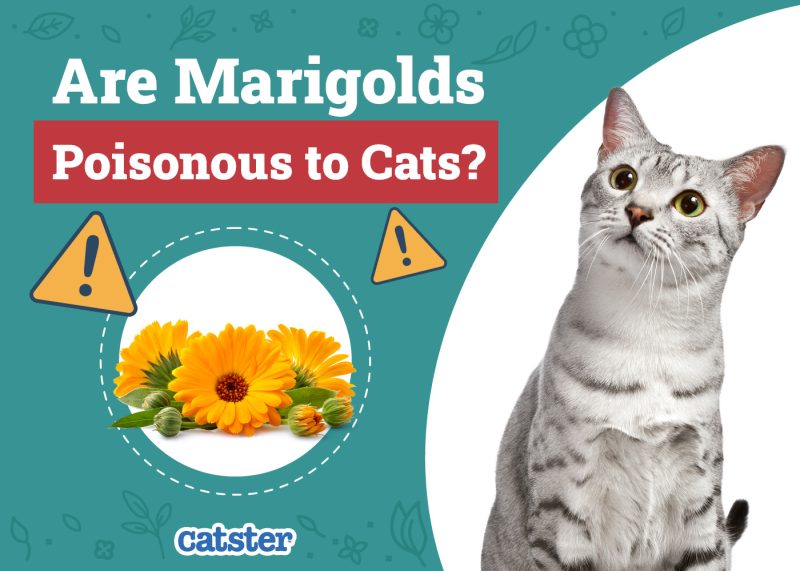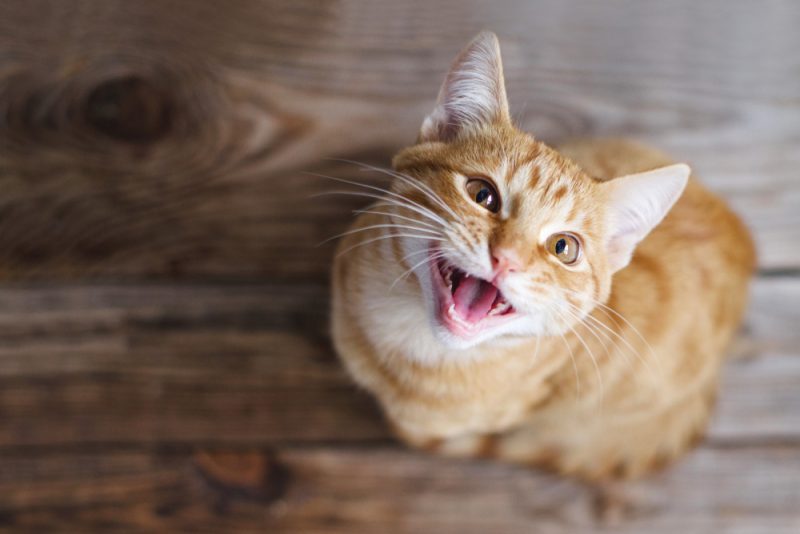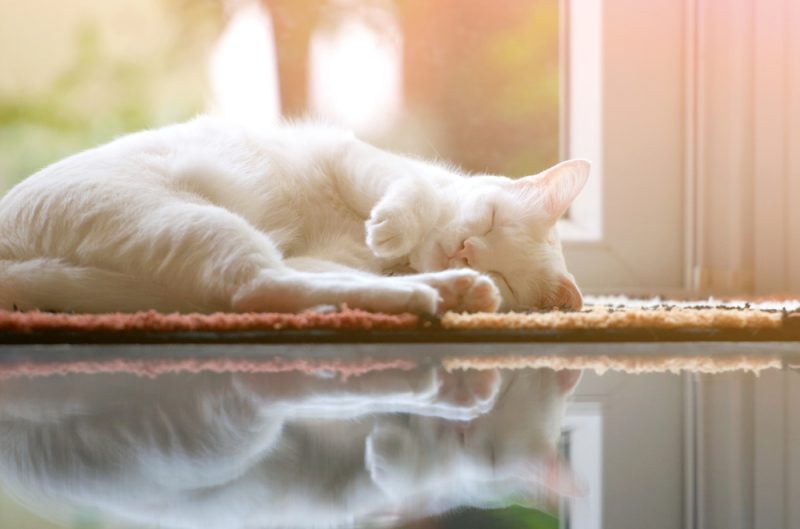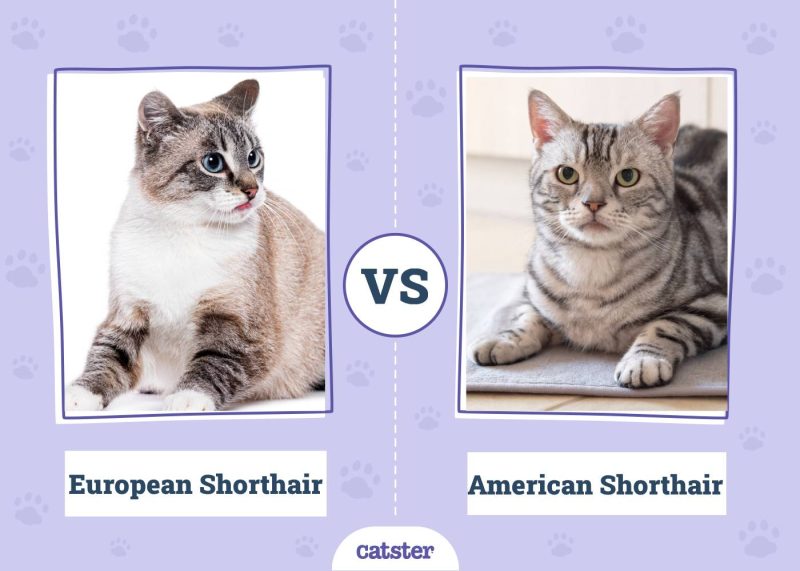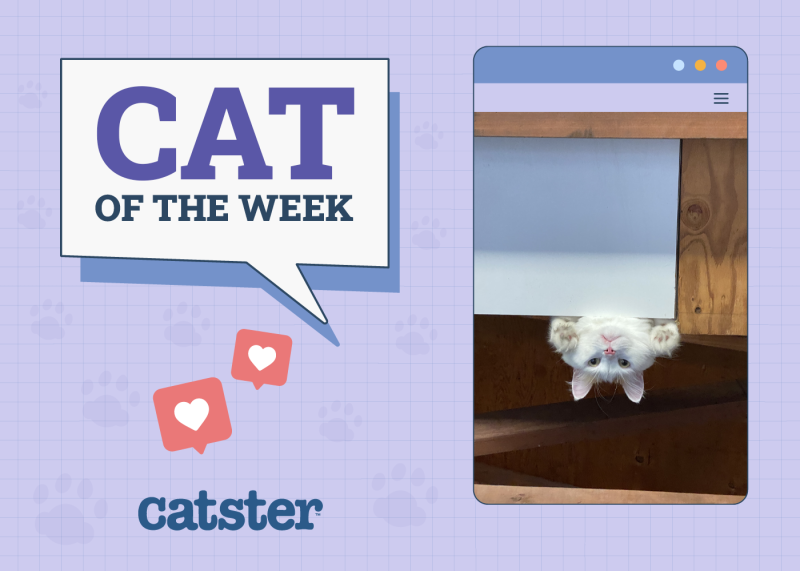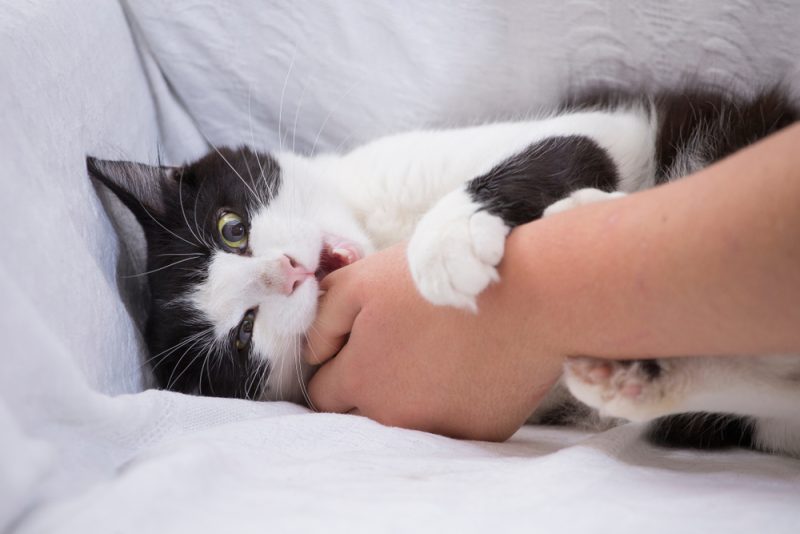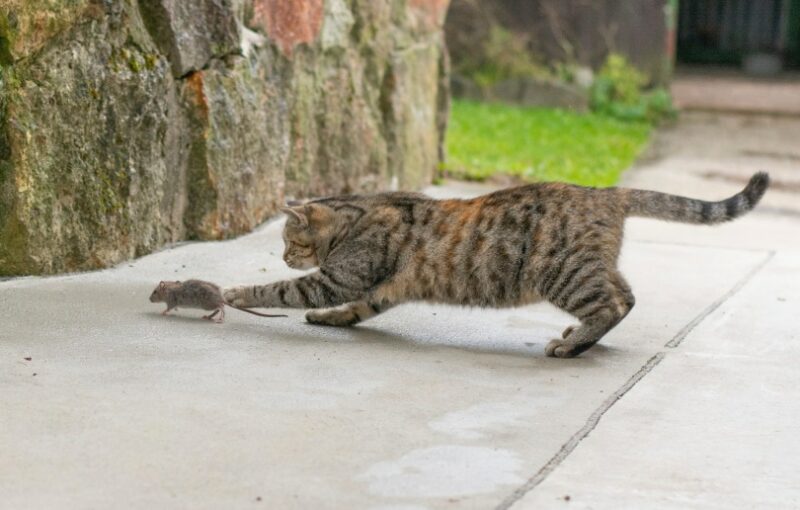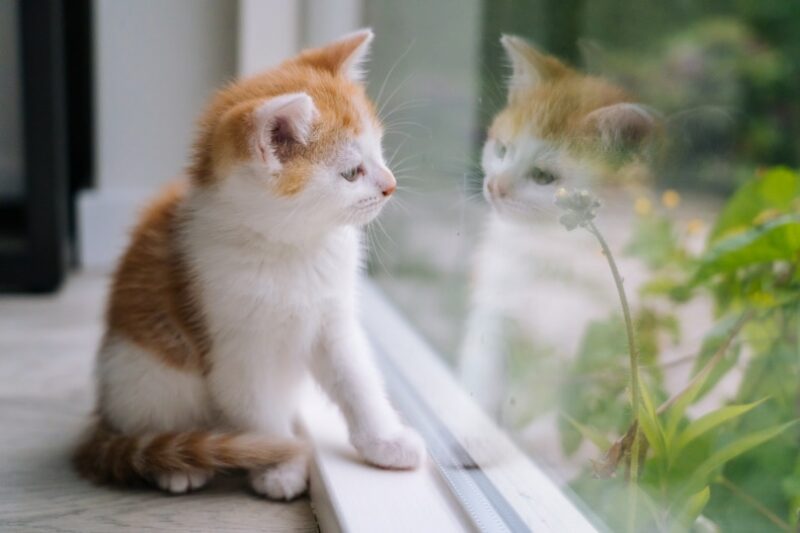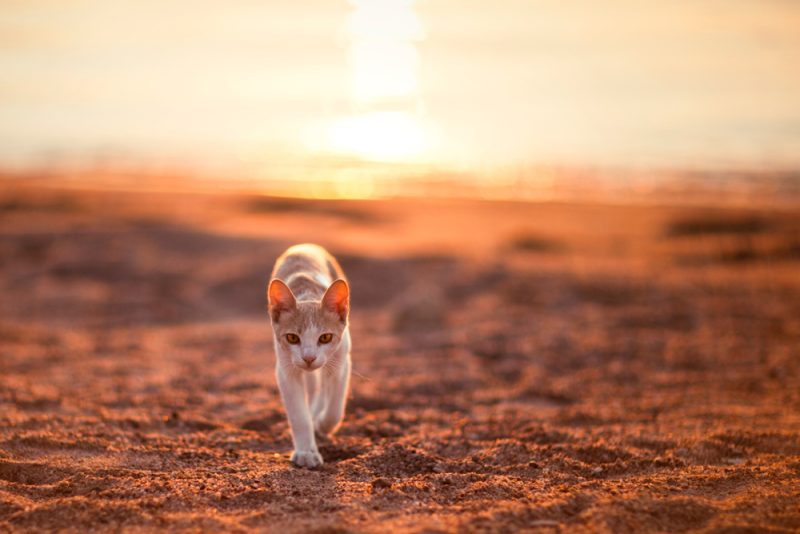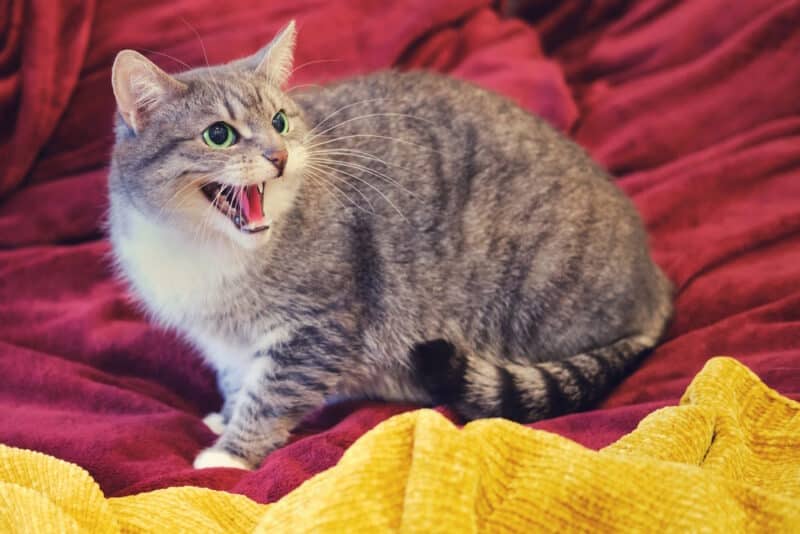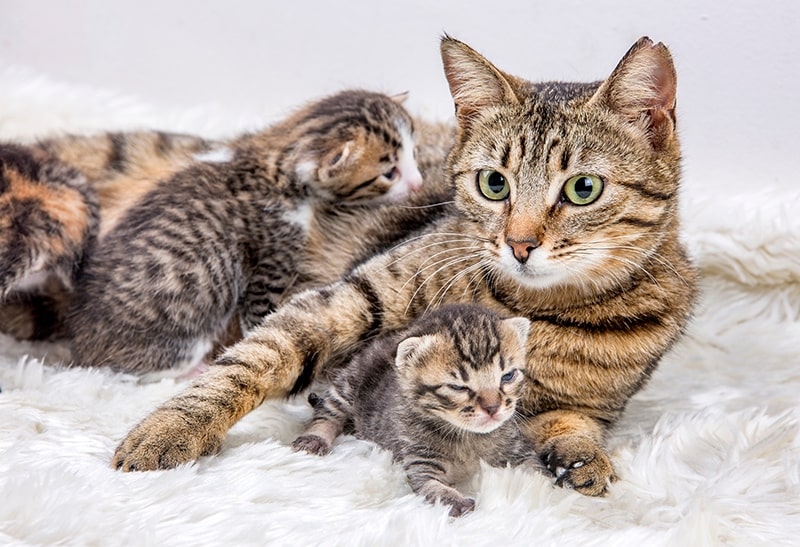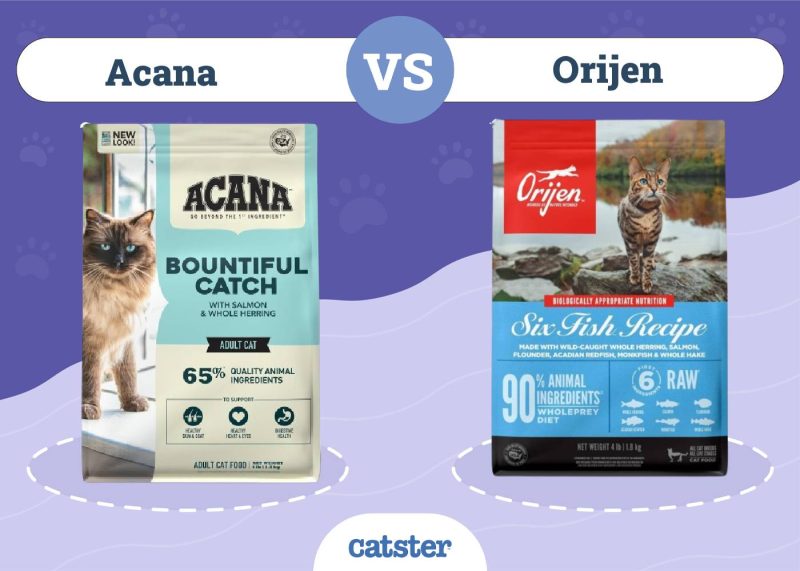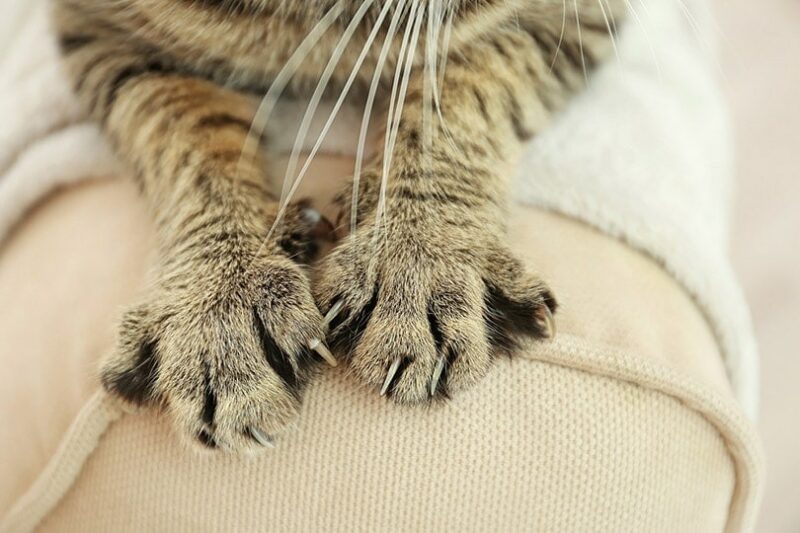If you are looking to grow this beautiful plant in your house with your feline companion or your kitty has taken a nibble of this flowering plant, you might be wondering if marigolds have any toxic or poisonous properties that would harm your cat. Fortunately, if a cat were to ingest a small amount of the pot marigold plant, it would not be harmful.
However, cats that consume large quantities of French marigold plants may face digestive issues. In this article, we explain what makes the marigold plant generally safe for cats and whether this plant can be grown in the same house as your feline friend.

Are the Marigold Plants Poisonous to Cats?
There are two classifications of the marigold plant, the Calendula officinalis (pot marigold) and the Tagetes patula (French marigold). Pot marigolds are generally considered to be harmless and non-toxic to cats, according to the ASPCA website, but French marigolds are mildly toxic to cats if ingested in large quantities.
Marigolds are popular plants usually put in pots or flower beds in a garden where they grow to medium size, with large, brightly colored flowers that attract insects and in some cases, cats.
Since cats are curious animals, they use their sense of taste and smell to explore their environment and see what tastes good and what doesn’t. Most cats will not like the taste of plants because they are strictly carnivores and should eat an animal-based and protein-rich diet rather than vegetation.
Although the common pot marigold is non-toxic to cats and not poisonous if they have a nibble on it, the French marigold is known to be toxic and can cause gastric upset in cats.

Can You Grow Marigolds With Cats?
You can safely grow pot marigolds with your cat, but you should avoid growing the toxic variety (French or Tagetes marigolds) in the same environment as your cat. It is best to grow safe plants if you have a cat and not risk growing potentially toxic plants because it is difficult to determine if your cat will take a nibble of the plant or not.
It is also important to verify that the marigold plant you have purchased is free from harmful pesticides, herbicides, or hormones that are used to benefit the plant’s growth and beauty but can be harmful if ingested by your cat. Also, check if it is the non-toxic or toxic variety of the marigold plant.

How Can You Tell If Your Cat Has Eaten Too Much of a Marigold Plant?
If you suspect that your cat has eaten a French or Tagetes marigold plant, it is important to take them to a veterinarian. A cat that is reacting to eating this plant may experience the following signs:
These signs are most common if your cat has ingested the toxic variety of the marigold plant, but signs such as gastric upset can also occur in cats that have eaten too much of the pot marigold plant. A veterinarian will be able to give your cat the right medications and treatment to help them feel better quickly. Since excessive drooling and diarrhea are the most serious signs of marigold poisoning, it can quickly cause a cat to become dehydrated, and they will need IV fluids from a veterinarian.
If you need to speak with a vet but can't get to one, head over to PangoVet. It's an online service where you can talk to a vet online and get the advice you need for your pet — all at an affordable price!


Conclusion
If you share a love for both the attractive flowering pot marigolds and cats, you can grow this plant in your house with your cat because it is a non-toxic member of the marigold plant family. However, you should take caution and consult with someone experienced in identifying the different plant species so you can ensure that you are growing the right type of marigold to avoid any accidental poisoning of your cat.
Featured Image Credit By: Pikist
